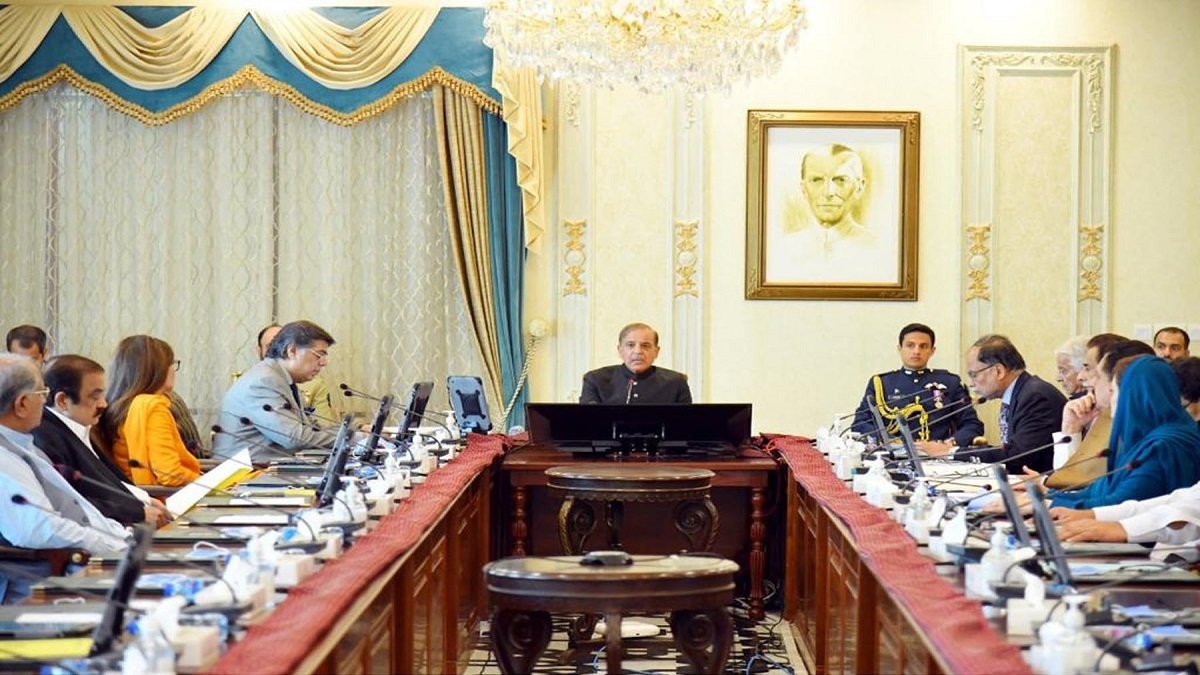The federal cabinet of Pakistan has expressed anger over the loss of private and public property during the violent protests that erupted after the arrest of PTI Chairman Imran Khan. The cabinet meeting, presided over by Prime Minister Shehbaz Sharif, described the treatment given to Khan as a “black stain” on the face of the judiciary. However, the cabinet rejected the proposal of imposing an emergency in the country.
Defense Minister Khawaja Asif had floated the proposal of declaring an emergency, but it was rejected by three mainstream political parties: Pakistan Peoples Party (PPP), Jamiat Ulema-i-Islam-F (JUI-F), and Balochistan National Party-Mengal (BNP-M). During an emergency, which can be imposed for a maximum of one year under Article 232 of the Constitution, all fundamental rights guaranteed in the Constitution are suspended.
The federal cabinet expressed grave concern over what it called “undue facilitation” given to Khan by the Supreme Court while he was under an eight-day physical remand in a corruption case. The Prime Minister’s Office (PMO) stated that Sharif rejected the “double standards of justice” being meted out to Khan in the case. Sharif accused the judiciary of becoming an “iron shield” for Khan and vowed that the ruling coalition would take every step to ensure the rule of law in the country.
Read More: Punjab Government Forms JIT to Probe Attack on Lahore’s Corps Commander’s House
Sharif alleged that the PTI chief was part of an agenda to bring fascist rule to the country for ten years. He accused Khan of being the mastermind and planner behind the attacks on military institutions that occurred during the protests.
The prime minister lambasted the PTI leadership for pushing the country towards the brink of a dangerous situation. He also accused Khan of promoting hatred and intolerance, inflicting damage on the fabric of society.
The country is currently passing through a difficult time, and the coalition government is making efforts to address the inherited challenges. The federal cabinet expressed concern over the loss of private and public property during the protests, but rejected the option of imposing an emergency in the country.



























